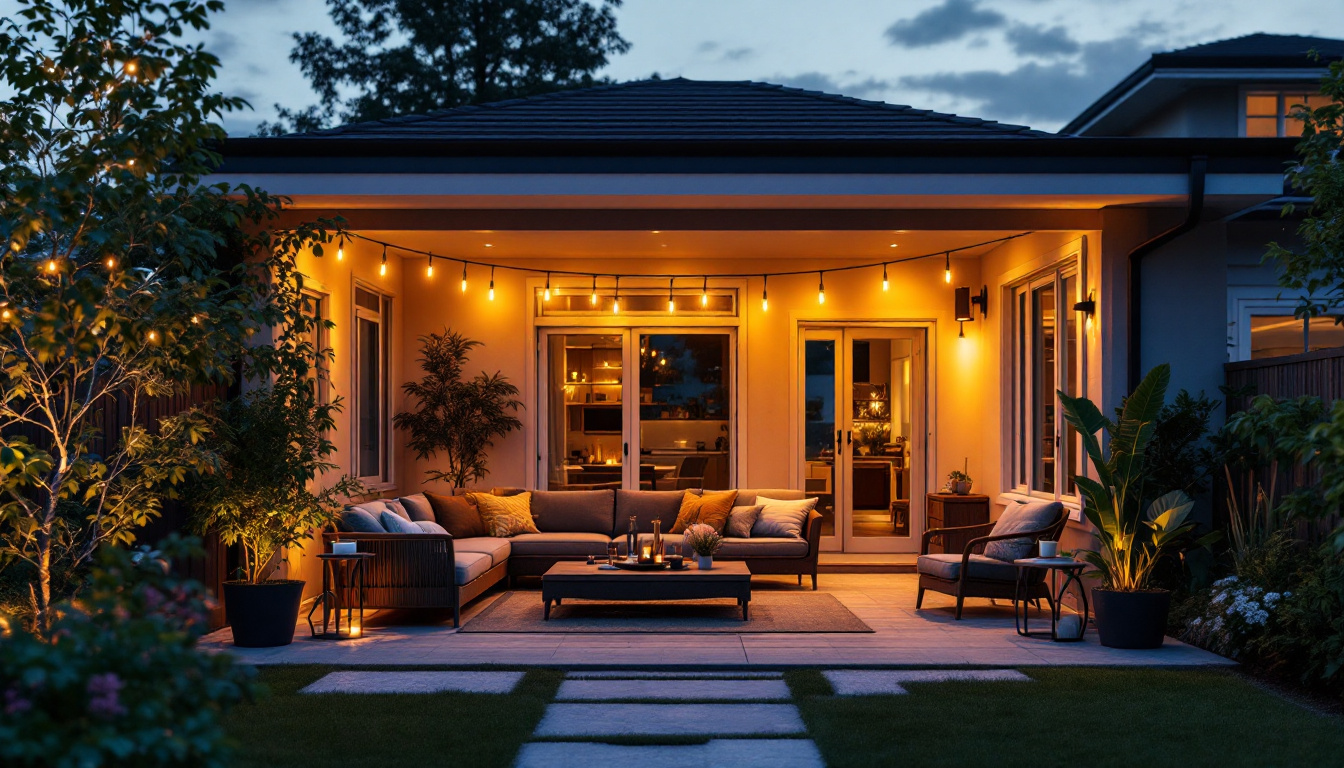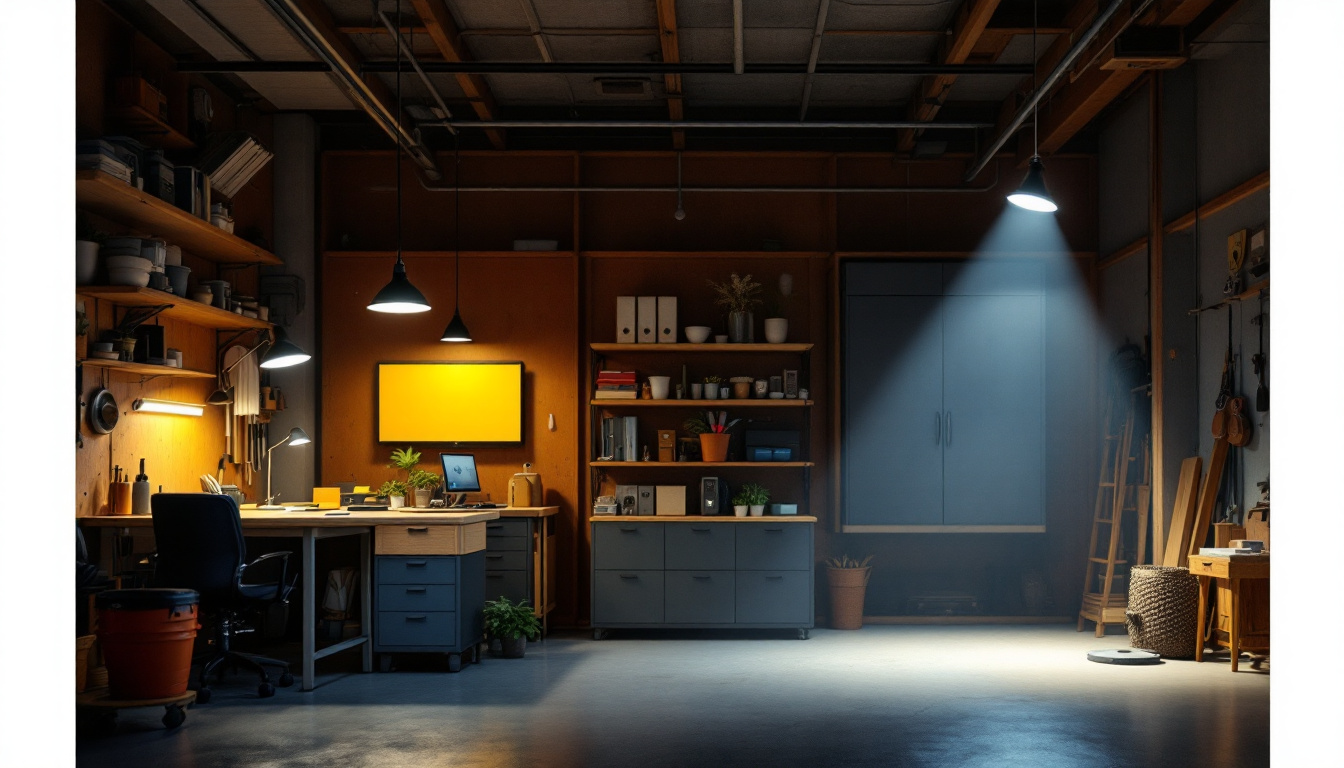
When it comes to garage lighting, clients often have specific expectations that lighting contractors should be aware of. The garage is not just a place for parking vehicles; it serves multiple purposes, including storage, workshops, and even recreational activities. Therefore, the lighting solutions must be versatile and functional. Understanding these needs is crucial for contractors aiming to meet and exceed client expectations.
Clients typically seek a well-lit environment that enhances visibility and safety. They may require bright, even lighting to prevent accidents, especially in areas where tools and equipment are stored. Additionally, energy efficiency is a growing concern, leading many clients to prefer LED options that reduce electricity costs while providing ample illumination.
Different activities conducted in the garage can influence the type of lighting required. For instance, a garage used primarily for parking may only need basic overhead lights, while a workshop will require task lighting that focuses on specific work areas. Understanding the primary functions of the garage will help contractors recommend appropriate lighting solutions.
Moreover, clients may engage in hobbies such as woodworking, automotive repair, or crafting, which necessitate specialized lighting. Task lights, under-cabinet lights, and adjustable fixtures can enhance the functionality of the space, making it easier for clients to perform intricate tasks safely. For instance, a woodworking enthusiast might benefit from a combination of bright overhead lights and focused spotlights that illuminate their workbench, ensuring precision and accuracy in their projects. Similarly, those who tinker with cars may require bright, shadow-free lighting that allows them to see every detail of the engine or undercarriage.
Safety is paramount in any garage setting. Poor lighting can lead to accidents, injuries, and damage to property. Clients expect lighting contractors to prioritize safety by recommending fixtures that provide adequate brightness and eliminate shadows. This is particularly important in areas where tools are used or where children might play.
Furthermore, contractors should be knowledgeable about the placement of lights to minimize glare and ensure that all corners of the garage are well-lit. This may involve using a combination of overhead lights and wall-mounted fixtures to create a balanced lighting scheme. Additionally, incorporating motion-sensor lights can enhance safety by automatically illuminating the space when someone enters, reducing the risk of stumbling in the dark. Clients may also appreciate the option of dimmable lights, which allow them to adjust the brightness based on the task at hand, creating a more comfortable working environment while still maintaining safety standards.
As awareness of environmental issues grows, clients increasingly expect lighting contractors to offer energy-efficient solutions. LED lights are a popular choice due to their long lifespan and low energy consumption. Contractors should be prepared to discuss the benefits of LED technology, including reduced electricity bills and lower maintenance costs. Unlike traditional incandescent bulbs, which typically last around 1,000 hours, LED lights can shine for up to 25,000 hours or more, significantly reducing the frequency of replacements. This longevity not only saves money but also minimizes waste, making LEDs a more sustainable choice for environmentally conscious clients.
Additionally, clients may be interested in smart lighting options that allow for remote control and automation. These systems can enhance energy efficiency by enabling users to turn lights on and off or adjust brightness levels from their smartphones. Smart lighting can also be programmed to follow specific schedules, ensuring that lights are only on when needed. Understanding these options and being able to explain their advantages can set contractors apart in a competitive market. Furthermore, integrating smart lighting with other home automation systems can create a seamless user experience, allowing clients to manage their entire environment from a single app.
Clients often appreciate the convenience of lighting controls that allow them to customize their garage lighting. Motion sensors, dimmers, and timers can enhance usability while promoting energy savings. Contractors should be familiar with various control systems and how they integrate with different types of fixtures. For instance, advanced systems can be linked to home security setups, where lights automatically activate in response to motion detection, providing an added layer of safety and peace of mind for homeowners.
For example, motion sensors can automatically turn lights on when someone enters the garage, ensuring that the space is always well-lit without requiring manual intervention. Dimmers, on the other hand, allow clients to adjust the brightness based on the task at hand, providing flexibility and comfort. This adaptability is especially useful in multi-functional spaces like garages, where lighting needs can vary significantly from one activity to another, whether it’s working on a car, organizing tools, or simply finding items in the dark. Moreover, incorporating timers can further enhance energy efficiency by ensuring lights are off during hours when the garage is not in use.
Clients expect their lighting contractors to be knowledgeable about local building codes and regulations regarding garage lighting. Compliance is essential not only for safety but also for avoiding potential legal issues. Contractors should stay updated on any changes in regulations and ensure that their recommendations meet these standards. This knowledge not only helps in maintaining safety but also builds trust with clients, who will appreciate a contractor that prioritizes adherence to legal requirements.
In addition to safety codes, contractors should also consider energy efficiency standards that may apply to lighting installations. Many regions have adopted stringent energy codes that dictate the types of lighting that can be installed, particularly in new constructions or major renovations. Clients will appreciate contractors who are proactive in ensuring that their lighting solutions are compliant with all relevant regulations. Furthermore, discussing the benefits of energy-efficient lighting in relation to potential rebates or incentives can provide added value, making the project not only compliant but also cost-effective in the long run.
While functionality is crucial, clients also desire aesthetically pleasing lighting solutions that complement the overall design of their garage. Lighting can significantly impact the ambiance of the space, and contractors should be prepared to offer a range of design options.
From sleek, modern fixtures to more traditional designs, there are countless styles available to suit different tastes. Contractors should take the time to understand the client’s vision for their garage and recommend lighting that aligns with that vision while also fulfilling practical requirements.
The selection of fixtures plays a vital role in achieving the desired aesthetic. Ceiling-mounted fixtures, pendant lights, and wall sconces can all contribute to the overall look and feel of the garage. Contractors should consider the size of the garage, the height of the ceiling, and the layout when recommending specific fixtures.
Additionally, the color temperature of the lights can influence the mood of the space. Warmer tones may create a cozy atmosphere, while cooler tones can provide a more industrial feel. Understanding these nuances allows contractors to tailor their recommendations to the client’s preferences.
Clients often appreciate the opportunity to customize their lighting solutions. This may involve selecting specific finishes, colors, or even integrating unique features such as adjustable arms or color-changing capabilities. Contractors should be open to discussing these options and helping clients create a lighting scheme that is both functional and personalized.
In some cases, clients may also want to incorporate decorative elements into their lighting design. This could include vintage-style bulbs, artistic fixtures, or even themed lighting that reflects their hobbies or interests. Being able to offer creative solutions can enhance client satisfaction and lead to referrals.
Clients expect professionalism and expertise during the installation process. Lighting contractors should be prepared to discuss their installation methods, timelines, and any potential disruptions to the client’s routine. Clear communication is essential to ensure that clients feel informed and comfortable throughout the process.
Furthermore, clients often inquire about maintenance requirements for their new lighting systems. Contractors should provide guidance on how to care for different types of fixtures, including cleaning, bulb replacement, and troubleshooting common issues. Offering a maintenance plan or service can also enhance client trust and satisfaction.
After the installation is complete, clients may have questions or concerns about their new lighting. Contractors should be available for follow-up support, whether it’s addressing minor adjustments or troubleshooting issues. This commitment to customer service can significantly impact client satisfaction and lead to long-term relationships.
Providing educational resources, such as user manuals or online guides, can empower clients to make the most of their new lighting systems. This proactive approach not only enhances the client experience but also positions the contractor as a knowledgeable and reliable resource.
Clients are increasingly interested in future-proofing their lighting investments. This means selecting fixtures and systems that can adapt to changing needs over time. Contractors should be prepared to discuss options that allow for upgrades or modifications without requiring a complete overhaul of the lighting system.
For instance, modular lighting systems that can be expanded or reconfigured offer flexibility for clients who may want to change the layout of their garage in the future. Understanding the importance of adaptability can help contractors provide solutions that align with clients’ long-term goals.
In summary, lighting contractors play a crucial role in meeting the diverse needs of clients when it comes to garage lighting. By understanding the various functions of the garage, emphasizing safety and energy efficiency, and offering personalized design solutions, contractors can exceed client expectations. Additionally, providing exceptional installation and post-installation support ensures a positive experience that fosters long-term relationships.
As the demand for innovative and efficient lighting solutions continues to grow, contractors who stay informed about the latest trends and technologies will be well-positioned to succeed in this competitive market. By prioritizing client education, customization, and compliance, lighting contractors can establish themselves as trusted experts in the field.
Ready to elevate your garage lighting installations with products that promise quality, efficiency, and value? Look no further than LumenWholesale. Our extensive selection of spec-grade lighting products is designed to meet the diverse needs of your clients, from safety and energy efficiency to design aesthetics and personalization. With unbeatable wholesale prices, free shipping on bulk orders, and no middleman markups, you can trust LumenWholesale to provide premium lighting solutions that align with your commitment to excellence. Discover the perfect blend of quality, affordability, and convenience for your next project. Visit LumenWholesale today for Wholesale Lighting at the Best Value.

Discover the ultimate guide to solar patio lights with expert tips from top lighting contractors.

Discover essential insights and expert tips on construction LED lights tailored for lighting contractors.

Discover the intriguing story behind the first prototype of the light bulb and its unexpected failures.

Illuminate your projects with precision! Discover the top 4 LED shop lights perfect for lighting contractors.